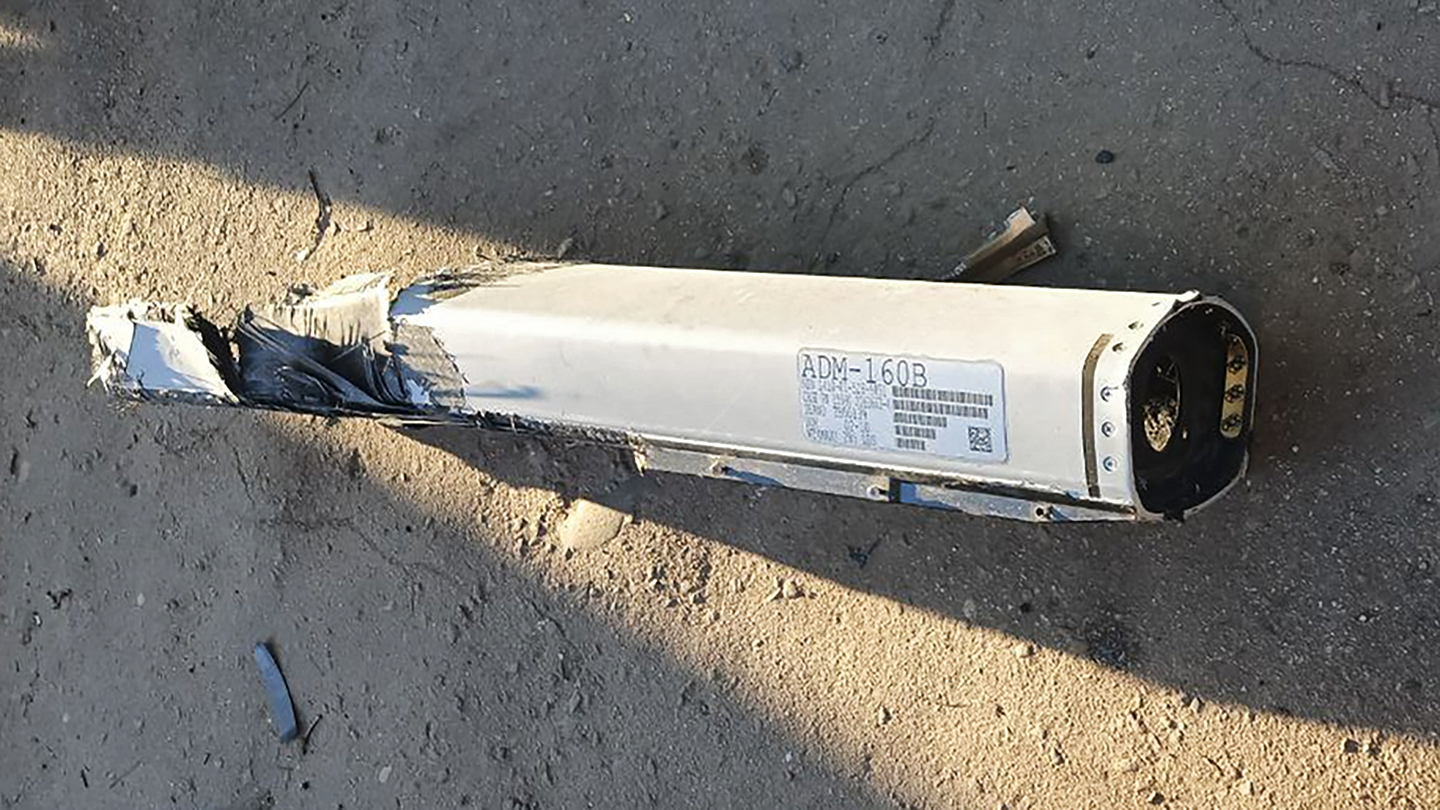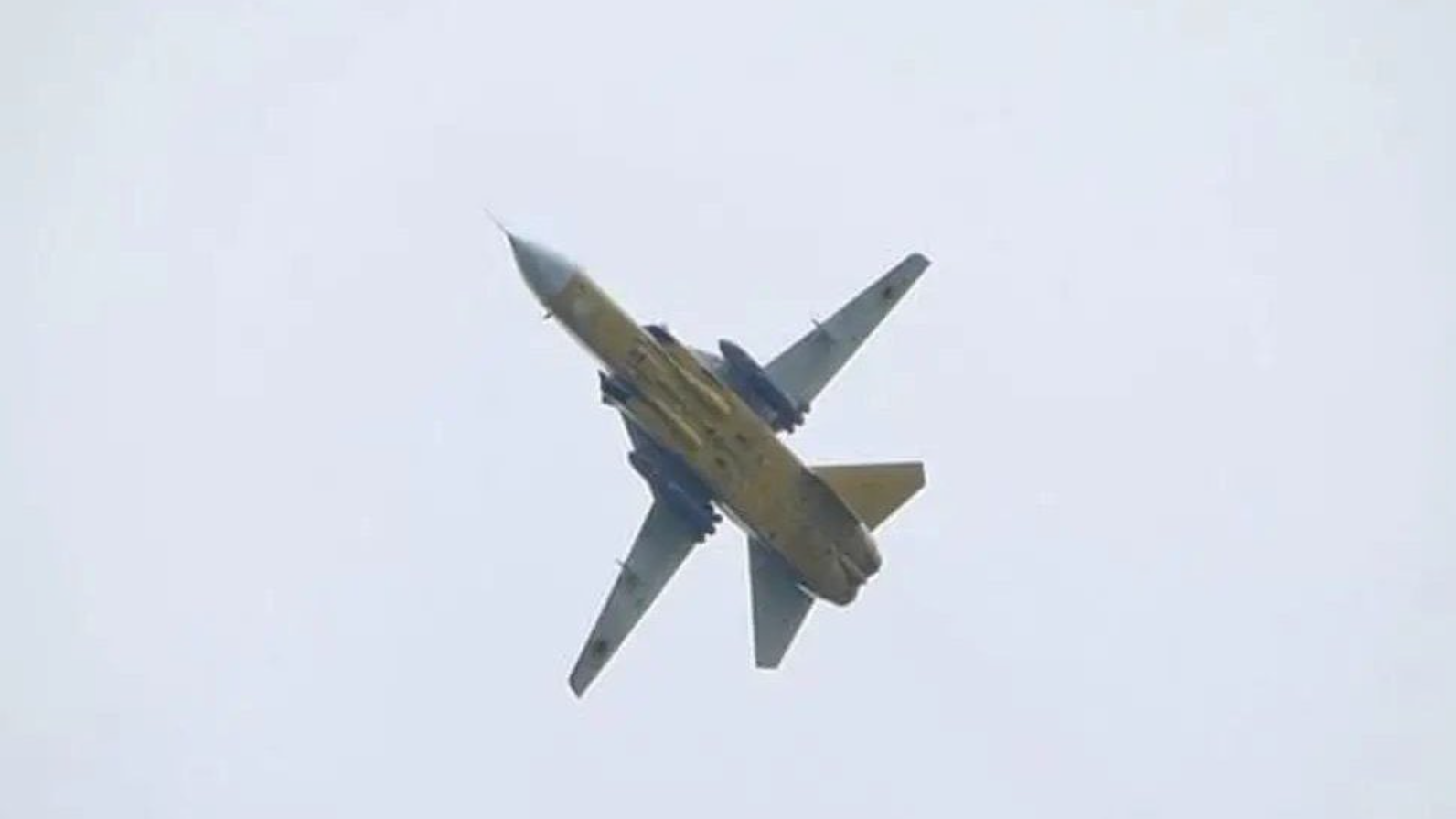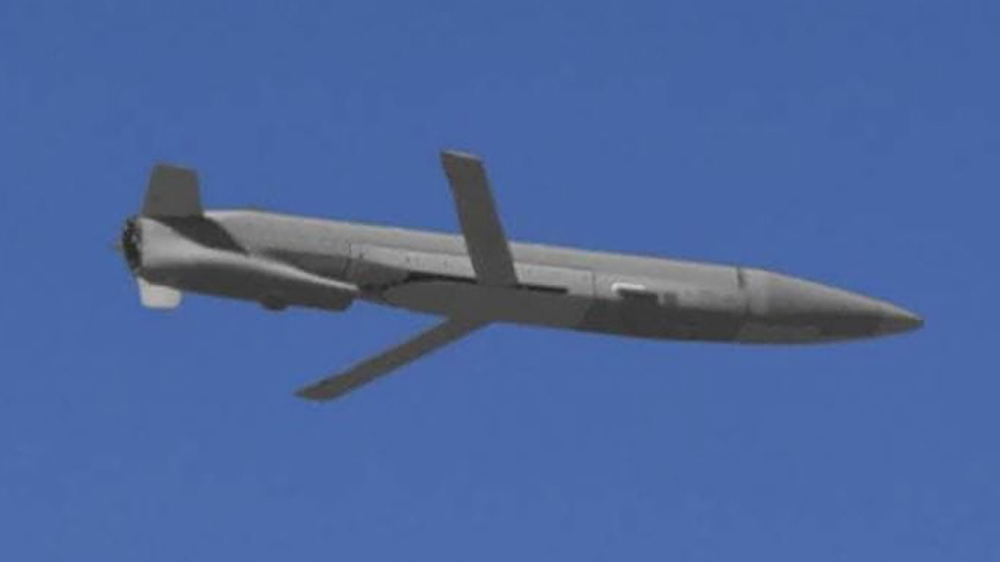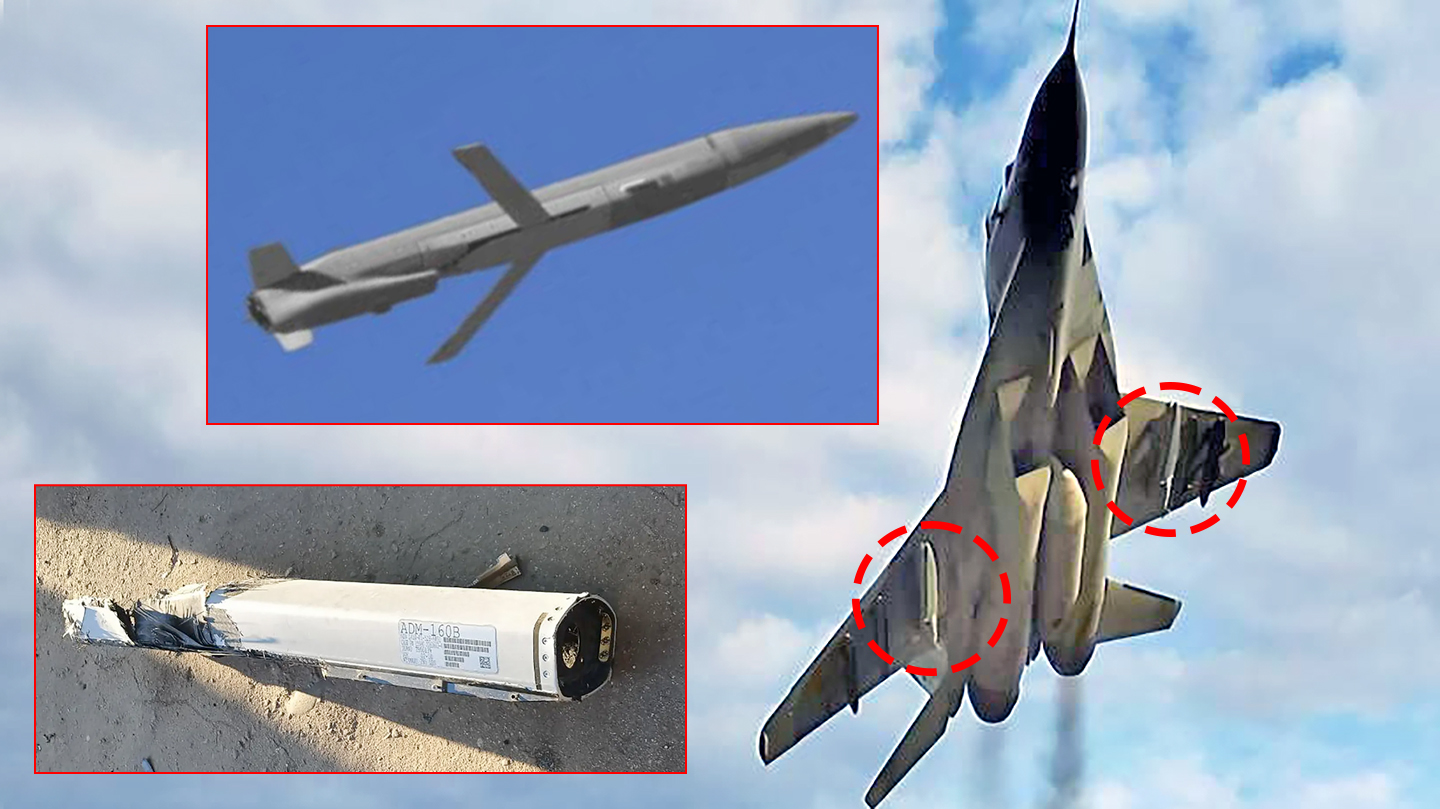A new photo finally confirms the identity of the launch platform for Ukraine’s ADM-160 Miniature Air Launched Decoy (MALD) — the Soviet-era MiG-29 Fulcrum fighter. While we had seen sporadic evidence of the use of MALD — a small cruise missile-like weapon designed to stimulate, confuse, and distract enemy air defenses, not attack them kinetically — it had not, until now, been seen mounted on a Ukrainian Air Force aircraft.
The photo in question provides a clear underside view of a single-seat MiG-29 as it performs a low pass. A single MALD is mounted on each of the two inner underwing pylons. Weighing around 300 pounds each, they are well within the payload capacity for the fighter’s underwing hardpoints. No other weapons are carried, although an external fuel tank is attached between the engine intakes. The date and location of the photo is not known.
TWZ previously reported on the emergence of the first evidence of MALD being used by Ukraine in its war with Russia. The first confirmed MALD wreckage appeared in May 2023, following an apparent airstrike in the Luhansk region of eastern Ukraine, as you can read about here.

In December 2023, more wreckage appeared, this time in a field reportedly somewhere in the Kherson region, in southern Ukraine.

We have also explored in depth exactly what MALD brings to the Ukrainian war effort. Powered by a small turbojet, these weapons fly pre-programmed routes, including loitering over target areas. In this way, they can distract and confuse Russian air defenses, providing a better chance for Ukrainian missiles to reach their targets.
In particular, MALD is primarily used in support of Ukrainian air-launched cruise missile strikes, which involve the Storm Shadow (supplied by the United Kingdom, and now Italy) as well as its French equivalent, the SCALP EG. To support this mission, the MALD has a range of around 500 miles, which also gives it significant loiter time.

ADM-160s first appeared just as Storm Shadow began being used and in similar areas as their targets, which makes perfect sense. These decoys can be equipped to have more prominent radar signatures than the missiles they are assisting, thus drawing away enemy air defenses. Storm Shadow and SCALP EG have low-observable characteristics, significantly reducing the range from which they can be detected by certain sensors. This, paired with careful route planning based on the latest intelligence on enemy air defense positions and capabilities, can drastically improve the chances of a successful cruise missile strike.
The need for additional measures to ensure the protection of the Storm Shadow and SCALP EG was dramatically demonstrated over the weekend, when footage emerged of the apparent engagement of one of the latter weapons by Russian air defenses, over the Luhansk region.
Intriguingly, while it’s by now no secret that Ukraine is using MALD, the supply of these weapons by the United States has never formally been disclosed.
As we have observed in the past, however, not only does MALD offer an otherwise unique capability to Ukraine, but having the chance to field the weapon against some of the most advanced and densely layered air defenses ever assembled will feed back into the development of more advanced versions and other countermeasures.

Since MALD can be loaded with the appropriate target data before launch, integration onto the MiG-29 was likely not a major endeavor. With that in mind, it’s highly possible that examples can also be launched by Su-24 Fencer strike aircraft and Su-27 Flanker fighters, although the former type is prioritized for delivering the Storm Shadow and SCALP EG cruise missiles themselves.
Once again, however, the MiG-29 demonstrates its remarkable versatility in Ukrainian hands. The Fulcrum remains the true workhorse of the Ukrainian Air Force combat fleet.
Previously, this was the first Ukrainian platform on which we saw the AGM-88 High-speed Anti-Radiation Missile (HARM) and the Joint Direct Attack Munition-Extended Range (JDAM-ER). The Fulcrum has also been seen with a specially adapted underwing pylon, related to the employment of the JDAM-ER, which you can read about here. New cockpit displays may help expand the operational flexibility of these weapons, as well.

More recently, the MiG-29 emerged as the first known launch platform for the French-supplied Hammer precision-guided bomb.
At this point, the appearance of new and additional stores on the Ukrainian MiG-29 would be far from surprising.
Contact the author: thomas@thewarzone.com
